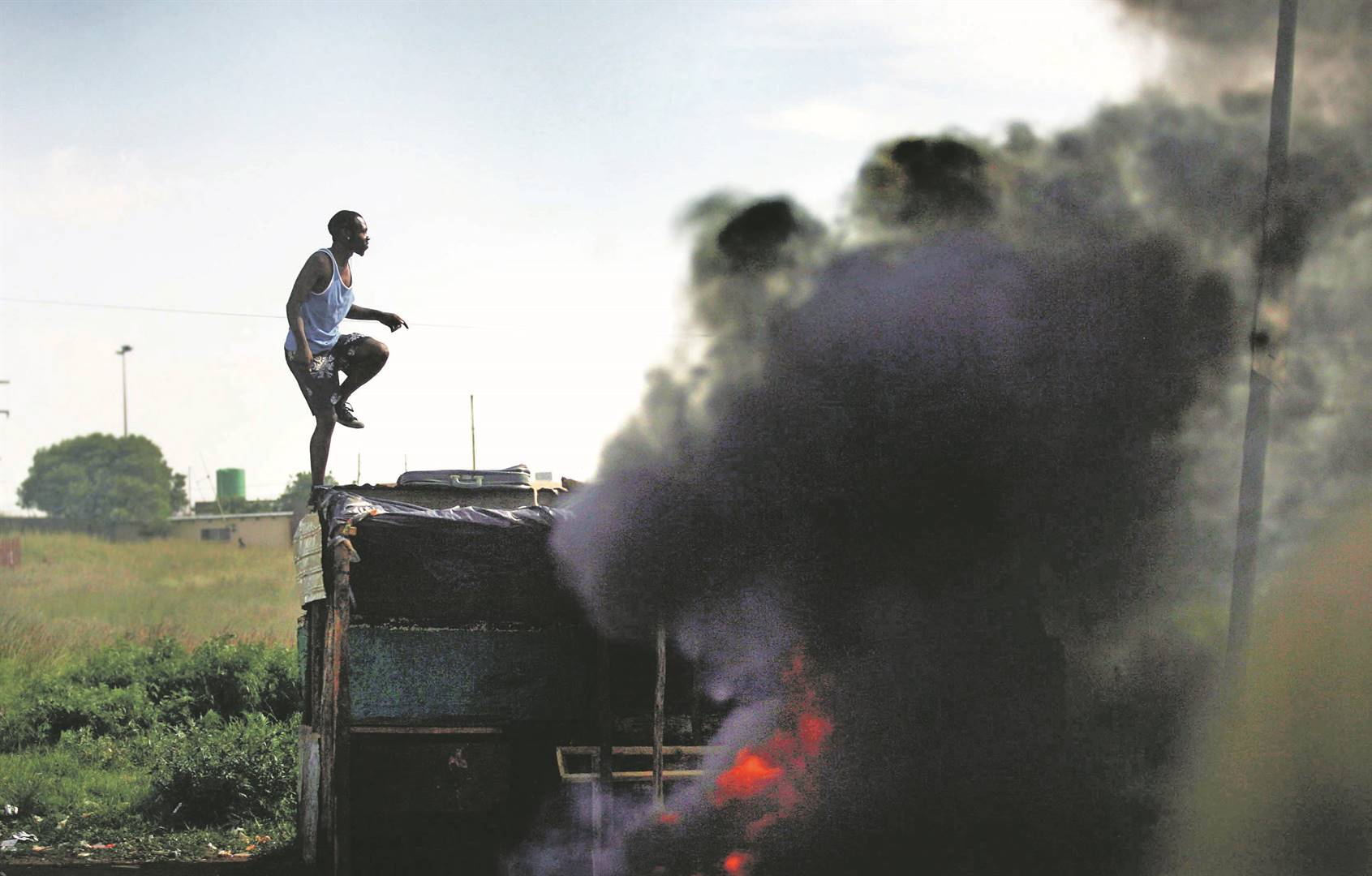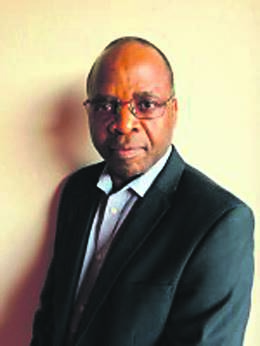
If we are to free ourselves as a nation, we must understand the root of most South Africans’ rage – the violence of colonial oppression
The key concepts of oppression, alienation and mental slavery will always bring back painful memories for most of us due to the colonial history that our country and, indeed, our continent has experienced.
In fact, in the case of South Africa, like in other countries that have experienced the different shades of colonialism (including the settler colonial project known as apartheid), large segments of our communities are still suffering under the twin burdens of alienation and mental slavery.
Karl Marx’s theory of alienation was central to his critique of industrial capitalism and the resultant class social system.
Over a period of time, Marx’s notion of alienation came to be understood in sociological terms to mean the alienation of workers within a capitalist system of production.
On the other hand, Melvin Seeman, an American social psychologist and professor of sociology at the University of California in Los Angeles, provided a robust definition of (social) alienation in a 1959 paper titled On the meaning of alienation, in which he identified the following key features:
- Powerlessness: When individuals are socially alienated, they tend to believe that they do not have control over what happens in their lives. They feel they do not have the power to shape their life course.
- Meaninglessness: When an individual fails to derive meaning from the things in which he or she is engaged.
- Social isolation: A person feels isolated, not connected to their community and without meaningful social relationships with other people.
- Self-estrangement: When a person experiences social alienation resulting in denial of their own personal interests and desires to satisfy the interests of others.
The other concept, mental slavery, was coined by a prominent Pan-Africanist and black nationalist, the Jamaican Marcus Mosiah Garvey, who arrived in New York in 1916 and founded a number of successful business ventures premised on Pan-African ideals.
Owen Alik Shahadah, of African-Caribbean heritage, gives an eloquent description of mental slavery: “Mental slavery is far more sinister than physical slavery because the chains are invisible and are transmitted across generations. If African slavery was only physical, African people would have within one generation been able to skip the plethora of socioeconomic issues that plague African people globally the second the chains came off.”
Root of the problem
What, then, are the possible causes of the psychological ills that continue to afflict African people here at home, in the rest of the continent and in the diaspora?
Let me argue that the root cause is colonialism.
As most of us know, South Africa was primarily colonised by Europeans whose arrival in the southern part of the country is traced back to 1652, when Jan van Riebeeck arrived in the Cape.
It is recorded that Van Riebeeck’s initial intention was to only establish a halfway station in the Cape, but it appears that he soon realised that our country had immense possibilities.
This resulted in him and his colleagues not only settling in the Cape, but also deciding to conquer the rest of the country and its inhabitants.
As we know, this is how our country became a settler colonial state that had to be maintained through brutal force and naked violence.
Over a period of time, this brutality and violence became the norm, which got internalised by both the oppressor and the oppressed.
In turn, this internalised brutality and violence resulted in deep psychological wounds and scars that have remained with most us to this day.
Colonial hangovers
Generation after generation, Africans have continued to live with the lingering hangovers of colonial brutality, and its resultant psychological wounds and scars.
Social psychologists have consistently pointed out that emotional wounds and scars lead to other psychological problems and complications, such as intergenerational-transgenerational trauma, unresolved anger (towards self and others), self-hate and self-doubt.
Intergenerational or transgenerational trauma is defined in psychological literature as the transference of emotional, physical or social pain from one generation to another.
Alienation
It is possible for a people who have been oppressed for more than three centuries to exhibit forms of alienation from self and post-physical oppression if the mental slavery inculcated during colonialism has not been dealt with.
The unresolved anger, self-hate and self-doubt we witness in the behaviour of our people today are an indication that the psychological effects of the many centuries of oppression are still with us today.
Because of consuming internalised anger and self-hatred, we have the propensity to explode and to cause harm to ourselves, to others and to property.
This is a negative coping strategy used by some of us to deal with this internal turmoil and conflict.
In other words, social psychologists would argue that, when you see me chanting and burning a school, for example, I am expressing this internalised anger and self-hatred and I am projecting it outwards.
As the saying goes, I am cutting off my own nose to spite my face.
Way forward
I am reminded of the words of a song by the late Zimbabwean musician Oliver Mtukudzi: “Hooo todii, what shall we do?”
So, what are we going to do in South Africa about the deep-seated problems of alienation and mental slavery, and the resultant unresolved anger, self-hate and self-doubt that many of our people feel?
The Truth and Reconciliation Commission (TRC), established in 1995 as a component of the transition to a fully free and democratic country, could have been a good opportunity to launch programmes to deal with the psychological wounds and scars of the past.
It does, however, appear that the TRC process just opened up wounds in some cases.
As a country and as a people, we need courage and determination to confront the ghosts of our colonial past.
At a more practical and perhaps political level, I strongly believe that the land question still needs to be addressed.
In other words, no land, no meaningful African identity.
Perhaps the solution to our colonial legacy lies in Steve Biko’s profound words in his 1971 White Racism and Black Consciousness essay, where he wrote: “We must seek to restore to the black people a sense of the great stress we used to lay on the value of human relationships; to highlight the fact that, in the pre-Van Riebeeck days, we had a high regard for people, their property and for life in general … and to reduce the materialistic element that is slowly creeping into the African character.”
We have the power, the inner resources and the capacity to free ourselves from the shackles of colonialism and the psychological dysfunctions that this evil legacy has visited upon the majority of us.
Simply stated, it is indeed possible, even for people who have been oppressed for many centuries, to be freed from all forms of alienation and mental slavery.
The solution lies with each one of us.
The lyrics to Bob Marley’s song Redemption, which was inspired by the words of Marcus Garvey, still ring true today:
“Old pirates, yes, they rob I; Sold I to the merchant ships…/Emancipate yourselves from mental slavery; None but ourselves can free our mind/ Wo! Have no fear for atomic energy, ‘Cause none of them-a can-a stop-a the time/ How long shall they kill our prophets, While we stand aside and look?”
Sodi is a professor and clinical psychologist. This is an edited speech he delivered at an occasion to celebrate the Order of Ikhamanga bestowed on former City Press editor Mathatha Tsedu
TALK TO US
Do you have suggestions for methods for South Africans to process their emotional wounds and scars?
SMS us on 35697 using the keyword ALIENATION and tell us what you think. Please include your name and province. SMSes cost R1.50. By participating, you agree to receive occasional marketing material




 Publications
Publications
 Partners
Partners









